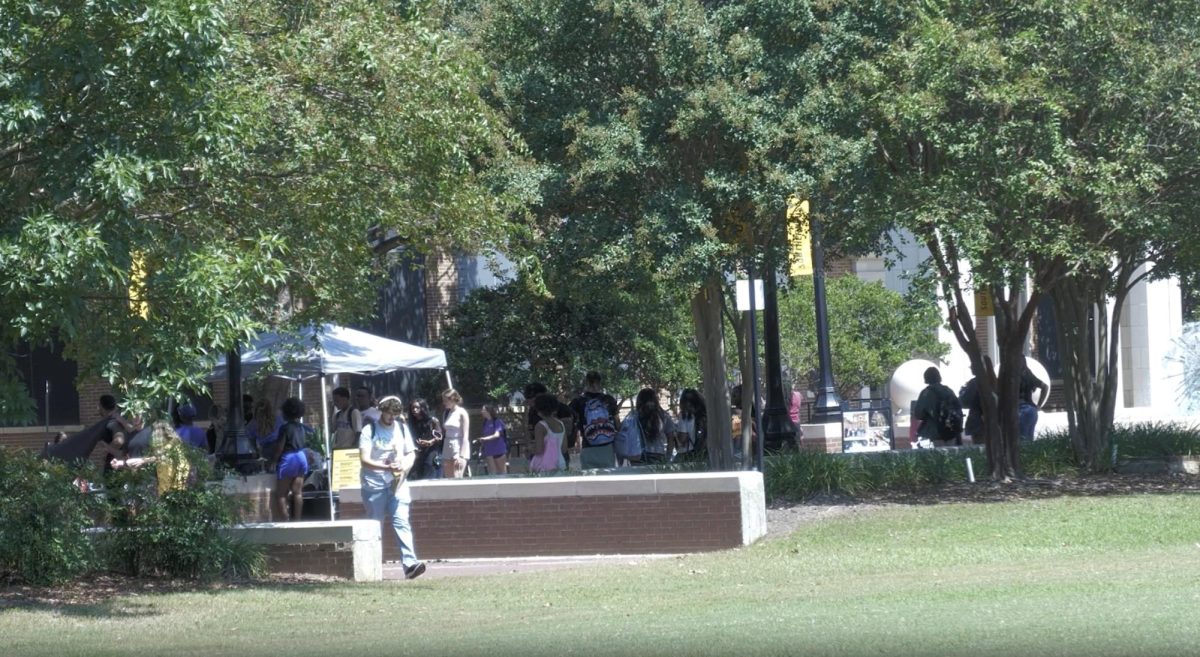The Mississippi legislature last week passed a ban on abortions at 20 weeks or more gestation, the midpoint of a full-term pregnancy.
The vote on House Bill 1400 counted in at 90-21 in the House and 41-10 in the Senate.
Gov. Phil Bryant said he looks forward to signing the bill.
“This measure represents a great effort to protect the unborn in Mississippi,” Bryant said in a statement, according to Associated Press.
Section 1 of the bill states, “substantial medical evidence recognizes that an unborn child is capable of experiencing pain by no later than 20 weeks after conception” and “the woman has adequate time to decide whether to have an abortion in the first 20 weeks after conception.”
Many oppose such thinking. Myles Ray, an active member in The University of Southern Mississippi’s Feminist Majority Leadership Alliance, said the “fetal pain” bill directly attacks women’s bodily autonomy.
“Under normal circumstances women usually do try to have an abortion as quickly as they can,” Ray said. “The anti-choice groups in this state have done everything in their power to put up barriers to abortion access, such as waiting periods, which force women to make multiple trips and actually cause the procedure to be delayed.”
“Women shouldn’t be forced to be a receptacle for another life against their wills any more than you should be forced to donate a kidney to someone on dialysis.”
The Susan B. Anthony List, an organization dedicated to advancing pro-life leadership, released a press statement after the bill’s passage.
“We applaud Mississippi legislators for passing this compassionate, modest legislation to protect unborn children and women from the horror of abortion more than halfway through pregnancy,” said SBA List President Marjorie Dannenfelser. “Twenty weeks is the point at which scientific research shows the unborn child feels pain.”
The bill, as stated in its language, came to be because Mississippi has a compelling state interest in protecting the lives of unborn children from the stage at which substantial medical evidence indicates that these children are capable of feeling pain.
The bill does not have exceptions for rape or incest cases, as some like Rep. Toby Barker, R-Hattiesburg, had proposed.
However, the bill still allows for abortion at or after 20 weeks in the case that the woman faces death or permanent injury due to the pregnancy.
Tanner Shaw, a sophomore accounting major, said the way a child is conceived should have no bearing on its right to life.
“The child is completely unaware of having been conceived during a rape or incest,” Shaw said. “It isn’t the kid’s fault, and he (or) she shouldn’t be corporally punished for the wrongdoing of others.”
Diane Derzis, owner of Jackson Women’s Health Organization, which is Mississippi’s only abortion clinic, told Associated Press that the clinic stops doing abortions after 16 weeks. Each woman at the clinic undergoes sonogram to determine fetal age.
Statistics from state health officials show that 2,176 abortions were performed in Mississippi in 2012. Two were listed at 21 weeks or later, and 382 were listed as unknown gestational age.
Sen. Deborah Dawkins, D-Pass Christan, said 20-week bans primarily affect poor women. She said those who have money and want an abortion can travel outside the state to do so.
Dawkins also said the method with which gestational period is measured is inaccurate, pointing out that women do not always have regular menstrual cycles.
The bill defines the gestational age as the time that has elapsed since the first day of the woman’s last menstrual period as determined using methods consistent with standard medical practice in the community.
The 9th U.S. Circuit Court of Appeals rejected a similar 20-week abortion ban in Arizona in January 2014, ruling that its language violated laws established in Roe v. Wade.
Planned Parenthood Southeast also declared HB 1400 unconstitutional.
In an open letter to state politicians, Planned Parenthood said, “When Mississippian voters rejected personhood in 2011, we made it clear that we don’t want politicians or the government to dictate deeply personal and complicated decisions around health care and pregnancy.”
Charmaine Yoest, president of Americans United for Life, expressed her approval of the bill and said late-term abortions are lethal for both mother and child.
“A woman seeking an abortion at 20 weeks is 35 times more likely to die from abortion than she was in the first trimester,” Yoest said. “At 21 weeks or more, she is 91 times more likely to die from abortion than she was in the first trimester. Such horrendous statistics show the wisdom of the Mississippi legislators who moved today to enact common-sense limits on a dangerous procedure.”
Mississippi will be the 21st state to adopt such a ban if signed into law by Gov. Bryant, according to the Guttmacher Institute. If signed, HB 1400 will go into effect July 1, 2014.





























